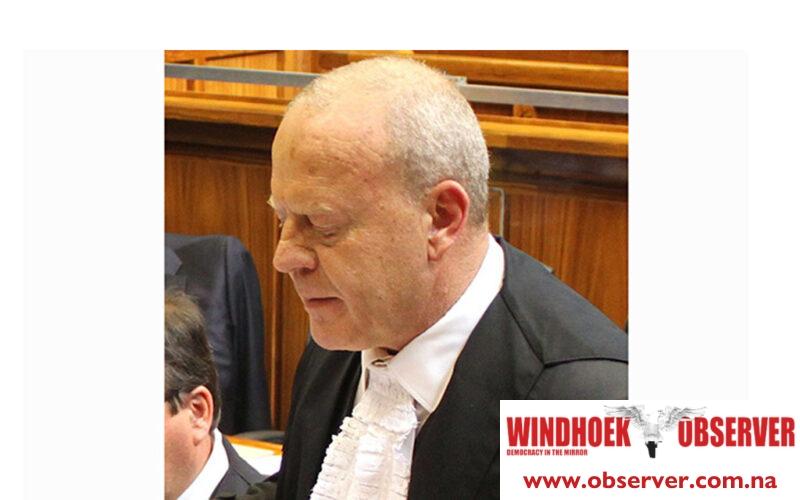Allexer Namundjembo
Advocate Raymond Heathcote’s remarks in the ongoing Veterinary Cordon Fence or ‘Red Line’ case in the Namibian High Court have drawn widespread criticism after he labelled Job Amupanda, leader of the Affirmative Repositioning (AR) movement, as a “danger to Namibia.”
Heathcote, who is representing the state, made the comment during a tense cross-examination session.
The Red Line is a boundary established during the apartheid era to separate Namibia’s communal farming areas in the northern parts of the country from commercial farming areas south of the fence.
“Based on this kind of evidence and your irrational stance, Mr. Amupanda, I would argue that you are indeed a danger to Namibian society with your campaign to remove the red line,” Heathcote said.
The red line, initially a racial demarcation, has since evolved into an economic divide, restricting agricultural trade between the North and the rest of Namibia.
Heathcote argued that Amupanda’s push for its removal was politically motivated and potentially harmful to Namibia.
However, this stance has triggered a strong backlash from various sectors of Namibian society.
Amupanda countered, accusing Heathcote and his client of defending colonial interests.
“You and your client, along with everyone defending settler interests, want the continuation of colonialism. Your client has existed since 1981, yet no offices exist on the other side of the red line. The danger lies with you,” Amupanda argued, asserting that those who support the red line are the real threat to Namibia’s national unity.
The heated exchange has sparked widespread debate online.
Many Namibians have questioned Heathcote’s choice of words and the motivations behind his argument.
Swapo Women Council secretary Fransina Kahungu weighed in, questioning the meaning of Heathcote’s use of the term “danger.”
“How does a mother feel when her son is a danger to the country? Similarly, how does a subordinate feel if her supervisor is a danger to the country? People, there is a need to define the word ‘danger.’ Are you referring to destructive danger or something else?” Kahungu asked.
Joe Nakale, a social media user, expressed his frustration, saying that the case should focus on economic implications rather than political rhetoric.
“This case needs to be argued from an economic perspective, not from a political one. Otherwise, some of us have no choice but to think it is politically motivated rather than based on economics. If these are the arguments being used by the defendant, then I doubt the positive outcome he seeks,” Nakale wrote.
Other voices echoed similar concerns, with Ekonia Munjanima suggesting that Heathcote’s stance might reflect his own privilege and disconnect from the realities faced by those living in the northern regions.
“Other people will not understand the impact that the red line has on the Black child. I’m not surprised that Heathcote is arguing this way, because he is not marginalised in the same way that we are,” Munjanima said.
As the case progresses, the public’s reaction underscores the growing debate over the red line’s lasting impact on Namibia’s social and economic landscape.
While some view the removal of the line as essential for national reconciliation and economic development, others, like Heathcote, fear that dismantling the boundary could disrupt Namibia’s already fragile economic equilibrium.




